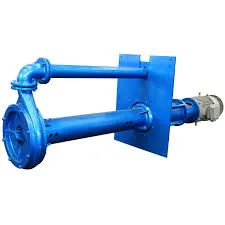Khmer
- Afrikaans
- Albanian
- Amharic
- Arabic
- Armenian
- Azerbaijani
- Basque
- Belarusian
- Bengali
- Bosnian
- Bulgarian
- Catalan
- Cebuano
- Corsican
- Croatian
- Czech
- Danish
- Dutch
- English
- Esperanto
- Estonian
- Finnish
- French
- Frisian
- Galician
- Georgian
- German
- Greek
- Gujarati
- Haitian Creole
- hausa
- hawaiian
- Hebrew
- Hindi
- Miao
- Hungarian
- Icelandic
- igbo
- Indonesian
- irish
- Italian
- Japanese
- Javanese
- Kannada
- kazakh
- Khmer
- Rwandese
- Korean
- Kurdish
- Kyrgyz
- Lao
- Latin
- Latvian
- Lithuanian
- Luxembourgish
- Macedonian
- Malgashi
- Malay
- Malayalam
- Maltese
- Maori
- Marathi
- Mongolian
- Myanmar
- Nepali
- Norwegian
- Norwegian
- Occitan
- Pashto
- Persian
- Polish
- Portuguese
- Punjabi
- Romanian
- Russian
- Samoan
- Scottish Gaelic
- Serbian
- Sesotho
- Shona
- Sindhi
- Sinhala
- Slovak
- Slovenian
- Somali
- Spanish
- Sundanese
- Swahili
- Swedish
- Tagalog
- Tajik
- Tamil
- Tatar
- Telugu
- Thai
- Turkish
- Turkmen
- Ukrainian
- Urdu
- Uighur
- Uzbek
- Vietnamese
- Welsh
- Bantu
- Yiddish
- Yoruba
- Zulu
Telephone: +86 13120555503
Email: frank@cypump.com
កក្កដា . 27, 2024 06:19 Back to list
Exploring the Role and Importance of Industrial Chemical Pumps in Manufacturing Processes and Safety Management
Industrial Chemical Pumps Essential Tools for Modern Manufacturing
In the world of industrial manufacturing, the importance of reliable and efficient chemical pumping systems cannot be overstated. Industrial chemical pumps are specialized devices designed to transfer, distribute, or process a variety of chemical substances, ranging from aggressive acids and corrosive bases to high-viscosity polymers and hazardous liquids. These pumps play a crucial role in various sectors, including pharmaceuticals, petrochemicals, wastewater treatment, and food processing, among others.
Types of Industrial Chemical Pumps
There are several types of pumps used in industrial applications, each suited for specific tasks and fluid characteristics. The most common types include
1. Centrifugal Pumps These pumps utilize a rotating impeller to create centrifugal force, which moves fluid through the pump. They are ideal for delivering large volumes of low-viscosity fluids and are widely used in applications where a steady flow rate is necessary. Centrifugal pumps are easy to maintain and are often constructed from materials resistant to corrosion, such as stainless steel and various plastics.
2. Positive Displacement Pumps This type of pump, which includes gear, diaphragm, and screw pumps, works by trapping a fixed amount of fluid and forcing it through the discharge outlet. Positive displacement pumps are particularly useful for handling viscous fluids or fluids containing solids, as they can maintain a consistent flow rate regardless of pressure changes.
3. Peristaltic Pumps Often used in metering applications, peristaltic pumps move fluid through flexible tubing by compressing and releasing the tubing in a peristaltic motion. These pumps are excellent for chemical dosing applications, as they can directly handle abrasive or corrosive materials without contaminating the fluid.
4. Diaphragm Pumps These pumps use a membrane to create a vacuum that moves fluid through the pump. They are particularly effective for handling corrosive and hazardous chemicals and are commonly used in applications requiring precise control over flow rates and pressures.
industrial chemical pumps

Importance of Material Selection
The materials used in the construction of chemical pumps are paramount to their performance and longevity. Given the corrosive nature of many industrial chemicals, it is essential to select materials that can withstand chemical attack. Common materials include various grades of stainless steel, polytetrafluoroethylene (PTFE), and other engineering plastics. Additionally, protective coatings and linings are often applied to enhance durability.
Safety and Compliance
With the handling of hazardous materials comes a heightened responsibility for safety and regulatory compliance. Industrial chemical pumps must meet stringent guidelines and standards, such as those set by the American National Standards Institute (ANSI), the American Society of Mechanical Engineers (ASME), and other national and international bodies. Implementing proper safety protocols, including leak detection systems, regular maintenance checks, and training for personnel, is essential to avoid accidents and ensure operational efficiency.
Innovations in Pump Technology
Recent advancements in technology have greatly influenced the design and operation of industrial chemical pumps. Smart sensors and IoT connectivity allow for real-time monitoring of pump performance, enabling predictive maintenance that can reduce downtime and operational costs. Enhanced automation and control systems improve the precision of chemical dosing and flow rate management, reducing waste and maximizing efficiency.
Conclusion
Industrial chemical pumps are a backbone of modern manufacturing, supporting the safe and efficient handling of various chemicals. The choice of pump type, material selection, and adherence to safety standards are critical factors that impact their performance. As industries continue to evolve, the demand for innovative and reliable pumping solutions will only grow, making the role of these essential tools even more significant in future manufacturing processes.
-
pipeline pump - Chi Yuan Pumps Co., LTD.|High Efficiency&Low Noise
NewsJul.31,2025
-
ISG Series Vertical Pipeline Pump - Chi Yuan Pumps Co., LTD.|High Efficiency, Energy Saving, Low Noise
NewsJul.30,2025
-
ISG Series Vertical Pipeline Pump- Chi Yuan Pumps|High Efficiency&Low Noise
NewsJul.30,2025
-
ISG Series Vertical Pipeline Pump-Chi Yuan Pumps Co., LTD.|High Efficiency&Energy Conservation
NewsJul.30,2025
-
ISG Series Vertical Pipeline Pump - Chi Yuan Pumps Co., LTD.|Advanced Hydraulic Design&Energy-Efficient Solutions
NewsJul.30,2025
-
ISG Series Vertical Pipeline Pump - Chi Yuan Pumps Co., LTD.
NewsJul.30,2025










